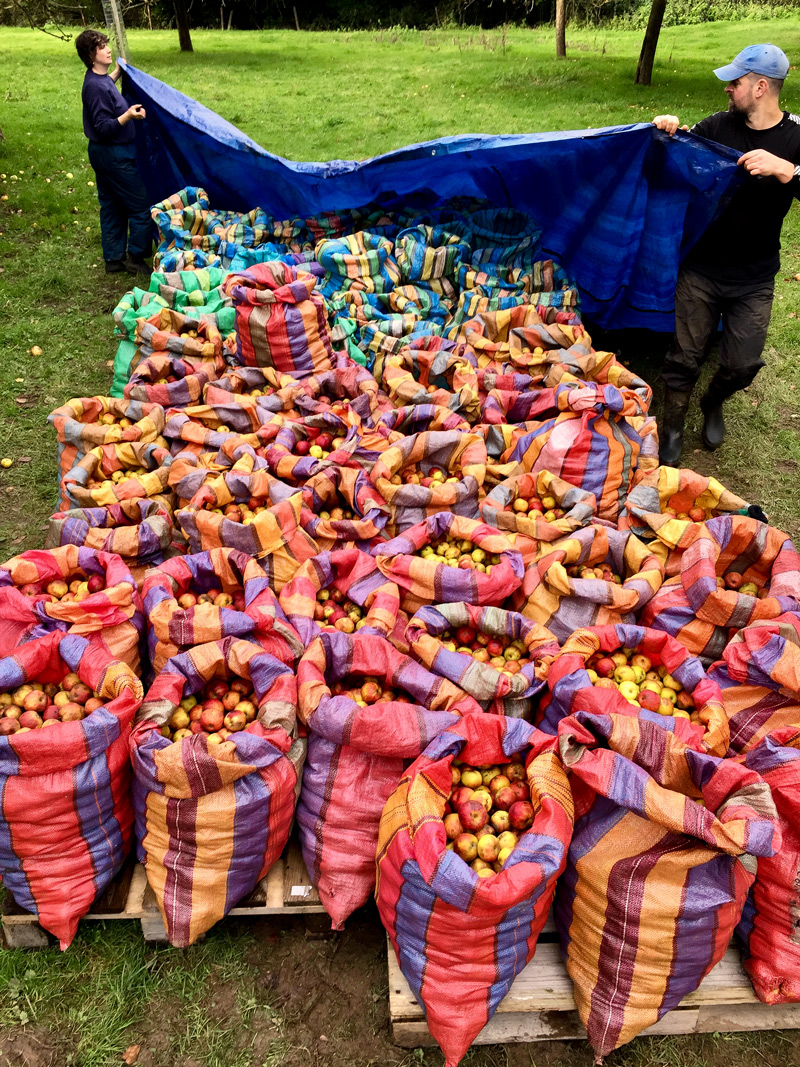Once more into the breach! Harvest definitely looking lighter than last year, some trees clearly over-did it in 2022. But plenty enough for our small operation and luckily where one variety is scant in one orchard it always seems to be found in the other to some degree. Sugars seem lower due to a wetter Summer and early Autumn, which suggests a milder Winter may be on the cards if any pattern can be followed.
We were lucky to have a cold snap in 2022 at the point of pressing, and all ciders keeved naturally to some degree, but I predict a more actively fermenting juice this time around and so racking may need to be more aggressive in order to frustrate the yeast.
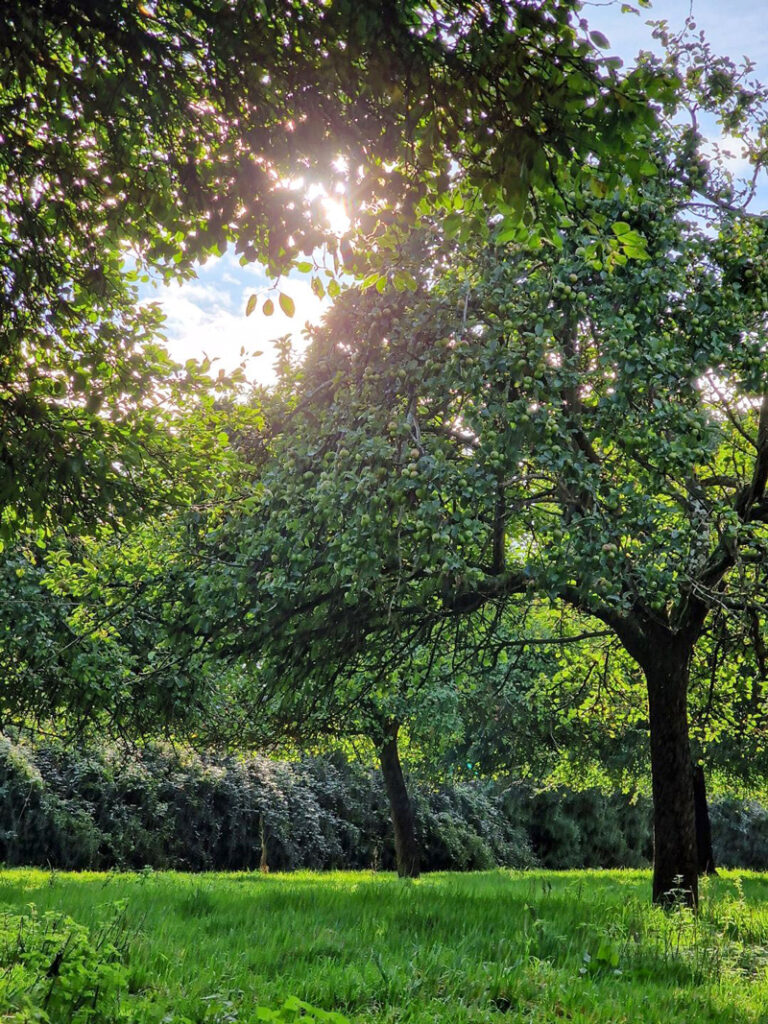
Beautiful Autumn light in the orchard at North Cadbury
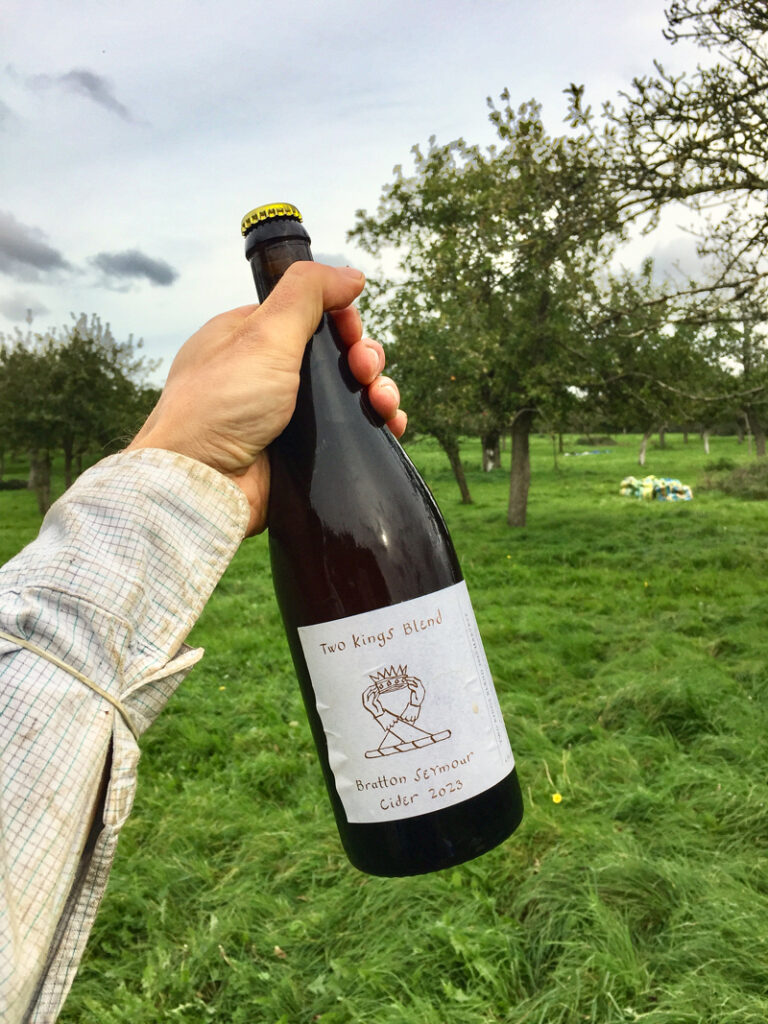
Opening a bottle of our 2022 Two Kings cider at the Woolston orchard.
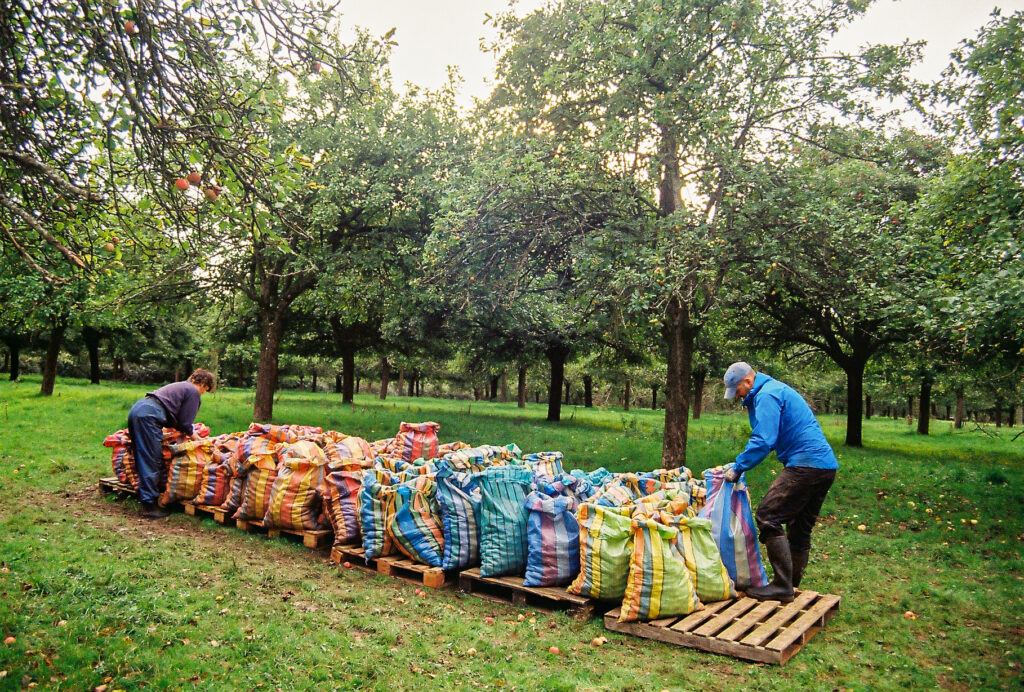
Here we are at Cadbury after a good days picking. Thanks to all kind friends! The apples are stored on pallets in the orchard until we have accrued enough to begin pressing.
We use Bolivian coffee sacks; a useful way to colour code all the varieties. Makes eyeballing quantities easier, especially when pressing. Kindly donated by Monmouth Coffee in London.
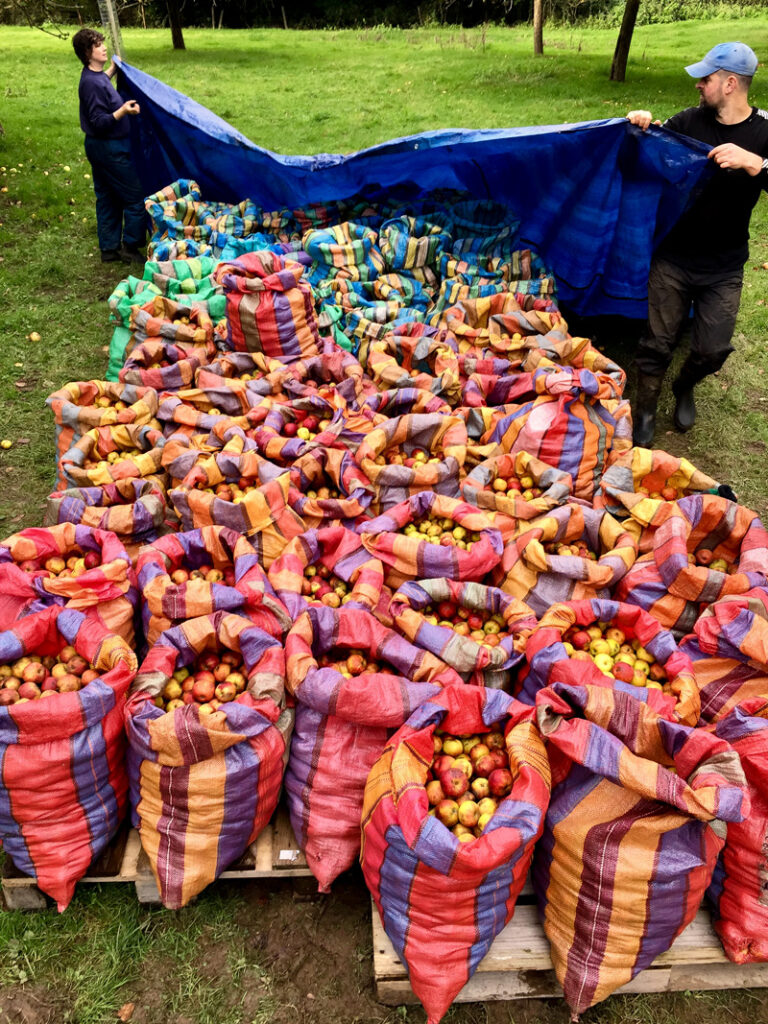
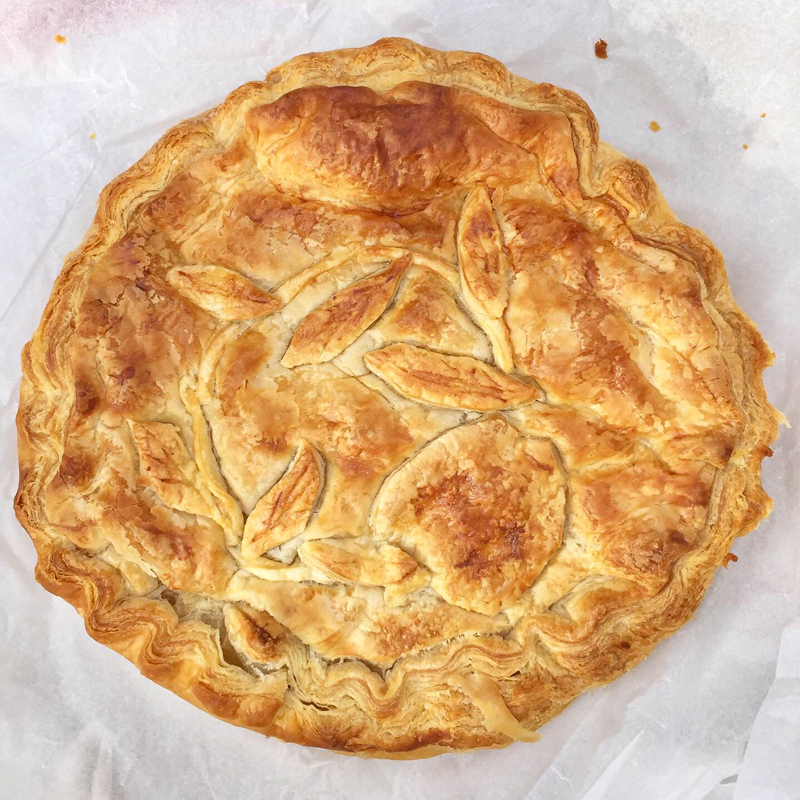
Lunch bolstered by a savoury pie cooked by our friend Rosie Sykes
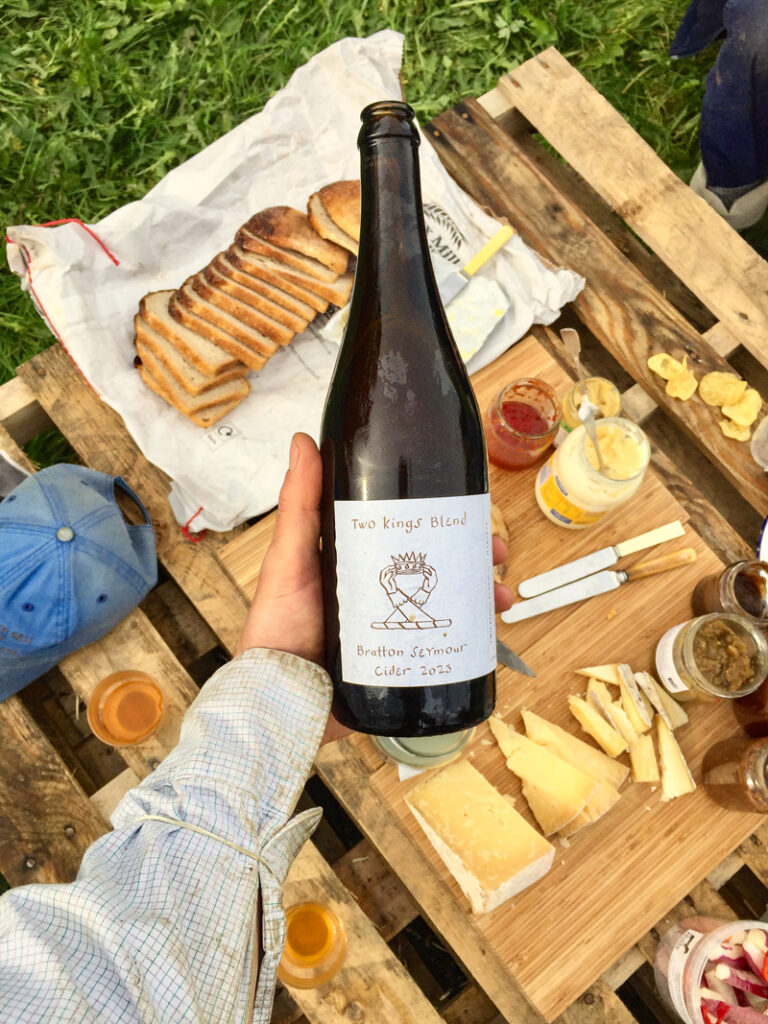
Two Kings for lunch
Most of the fruit we collect is that which has fallen naturally, which is better for flavour. Sometimes a tree might bear ripe fruit at the top, less ripe at the bottom, or on a more shaded side. It can be helpful to collect what’s available before returning a few weeks later when the rest is down, say, after a good strong wind. On these rare occasions we may need to ‘tickle’ the tree affectionally with a long pole. It’s always satisfying to hear the fruit descend onto tarpaulin, and even more so to sort through without ones knees in the cold mud.
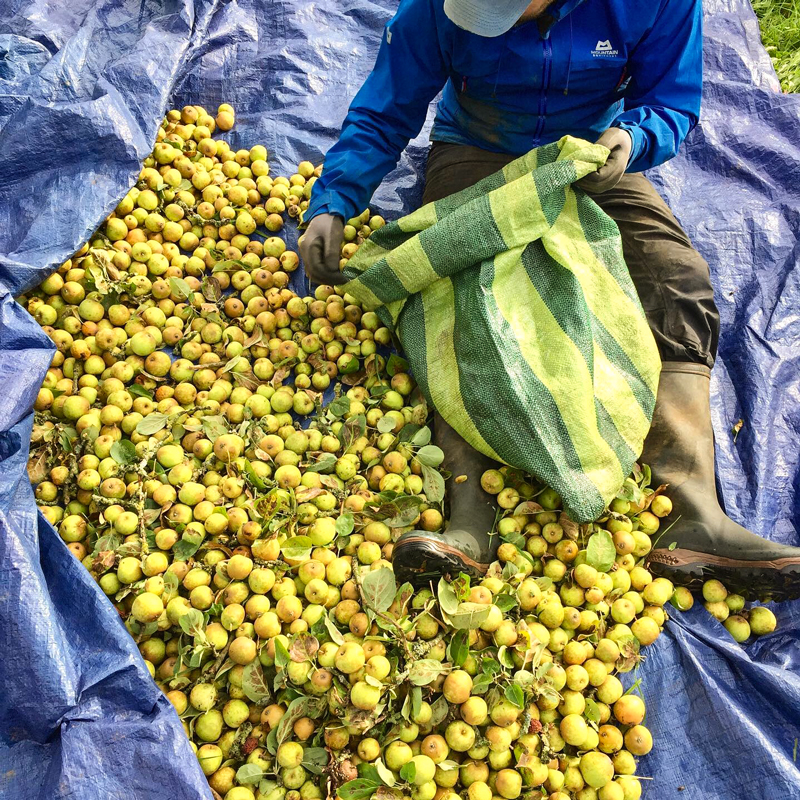
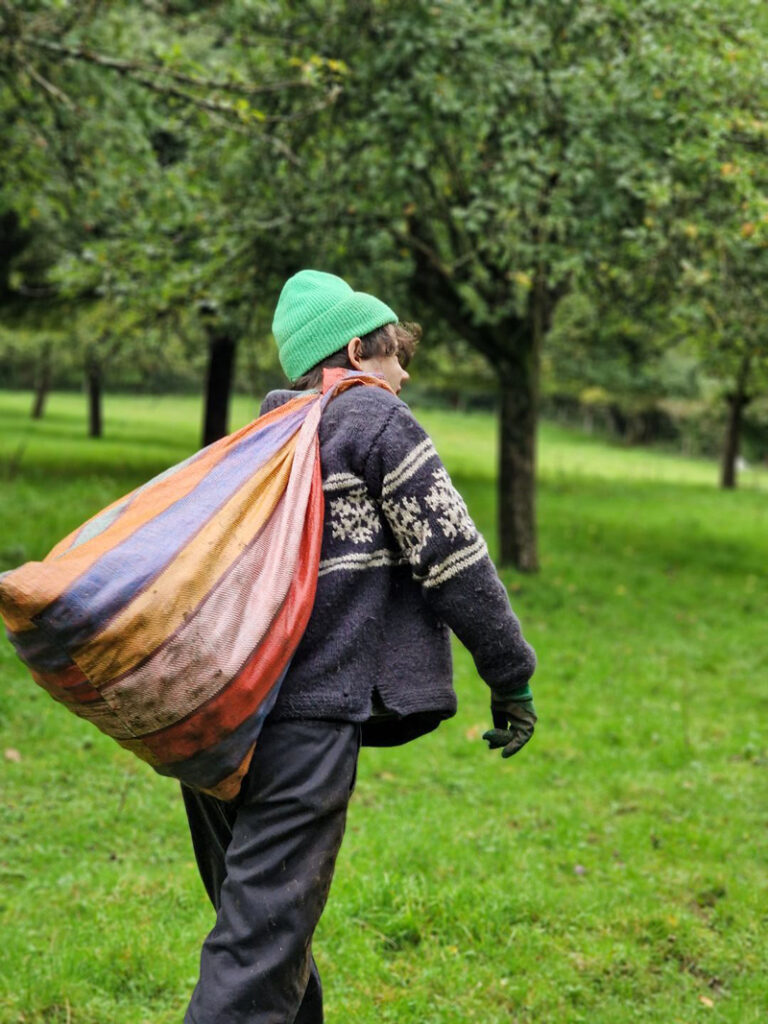
Complimentary Shiatsu massage as standard
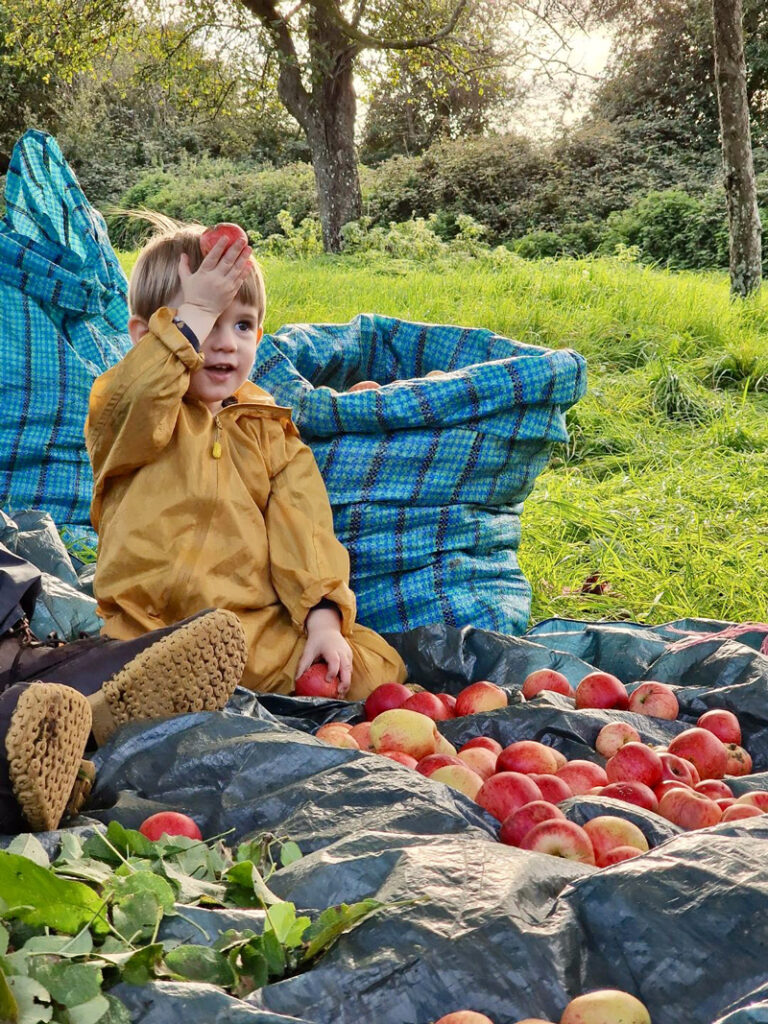
Future lifer
October saw us bust 124 sacks in one weekend. That’s 1 sack per person, per half hour. It is reckoned we get approx 6L of juice per sack, of which we lose maybe 1-2L to the reeve / cold racking process. The business model just about works if you have friends and a family happy to be paid in cider. Hoping to double this before pressing in December.
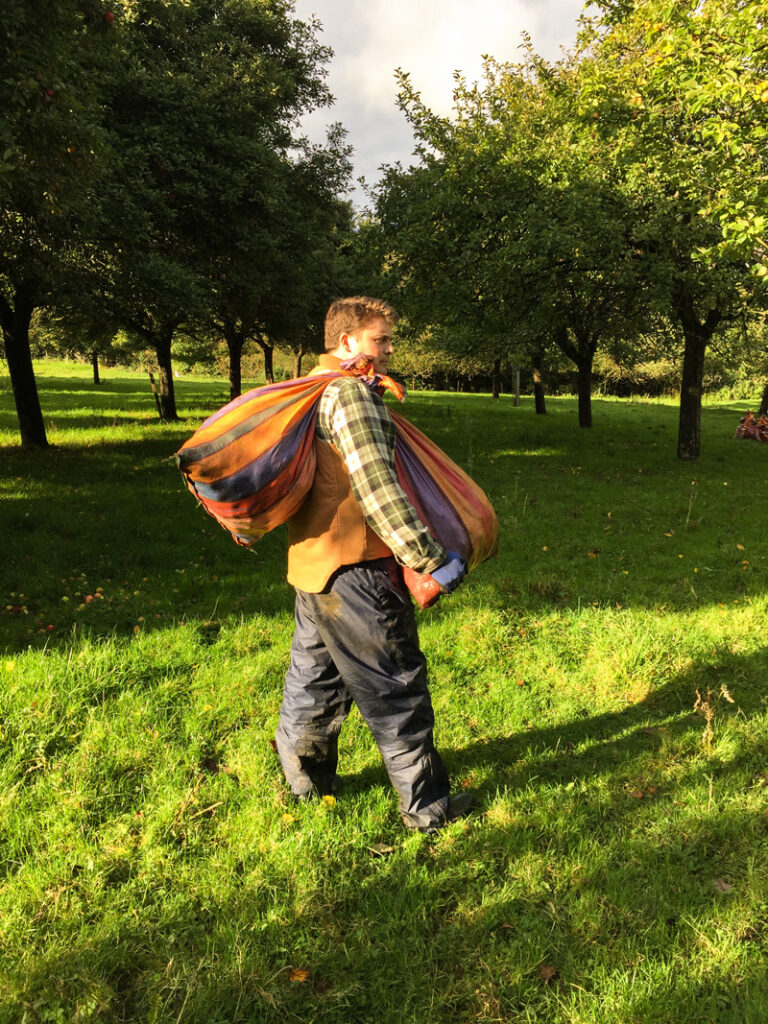
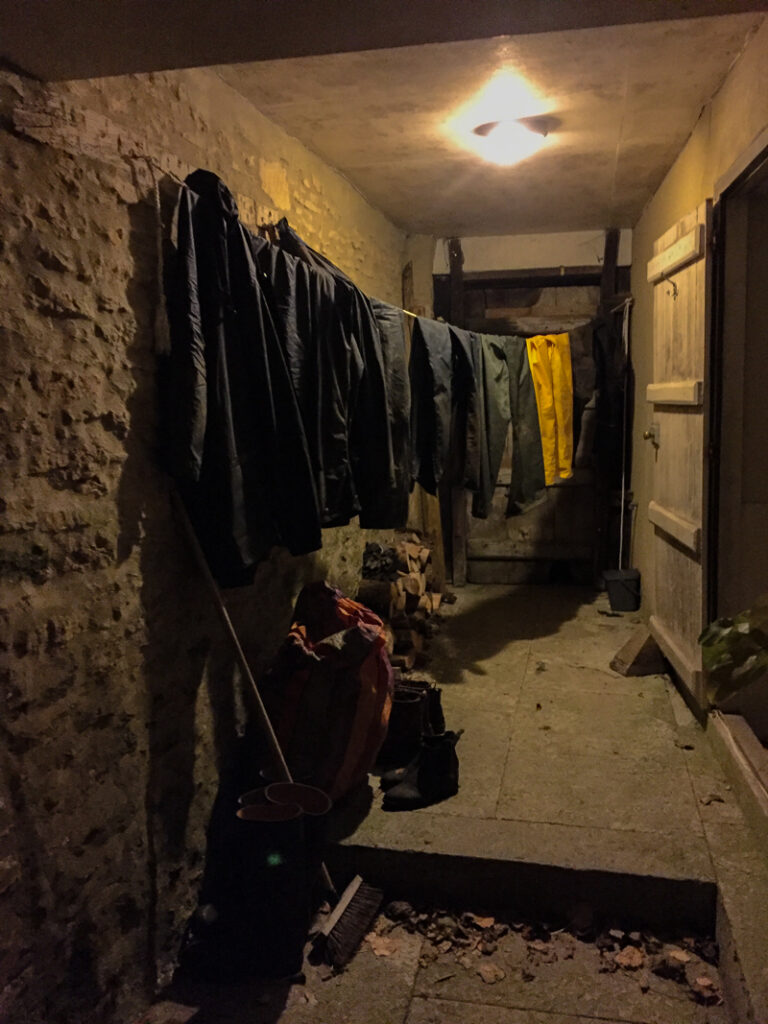
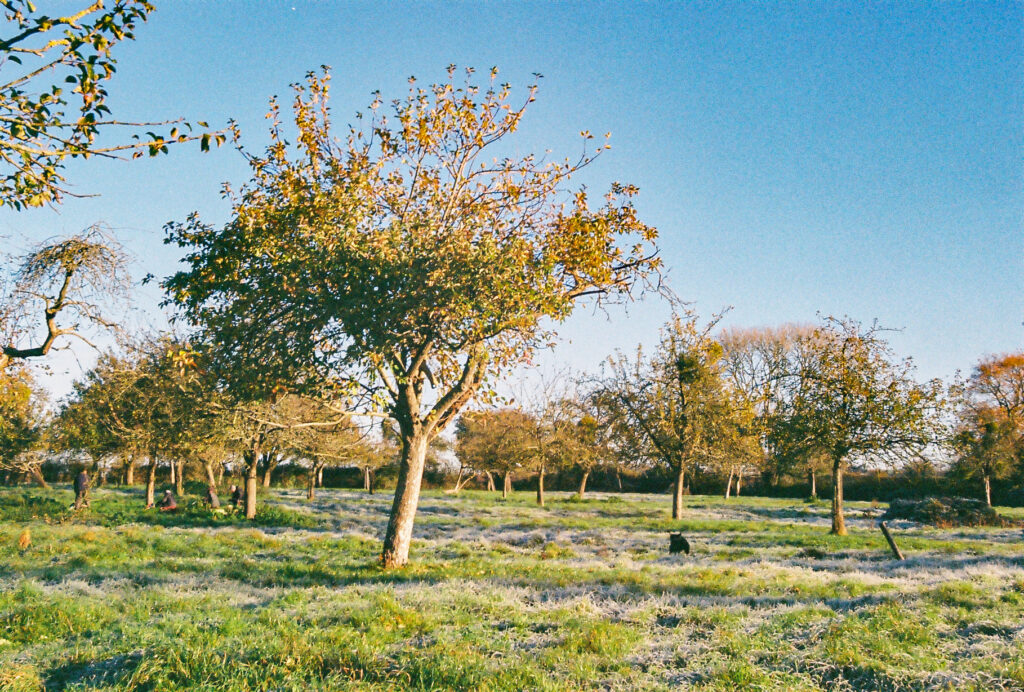
Winter now upon us. A cold morning picking the last of the fallen fruits. Grass is long now and its difficult to get at the fruit beneath. The Orchard at Woolston, which yields fruit for our Two Kings Blend, is very beautiful. Trees are small, knarled, some ensnared with thorns, other great fronds of mistletoe.
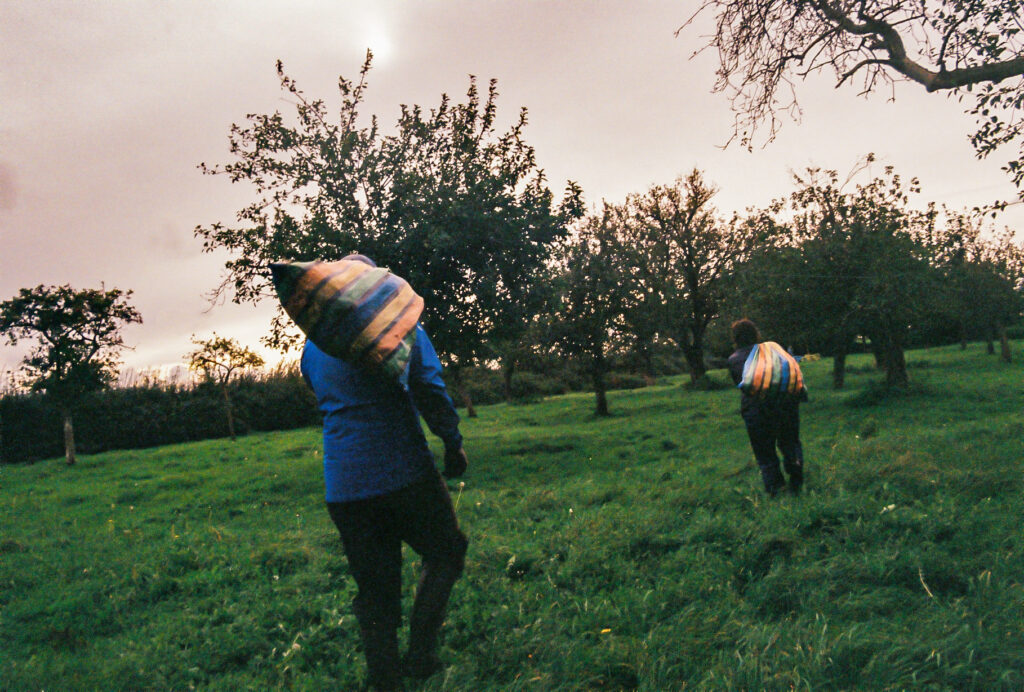
Staggering back to the ‘apple clamp’ beneath a most superstitious looking sky.
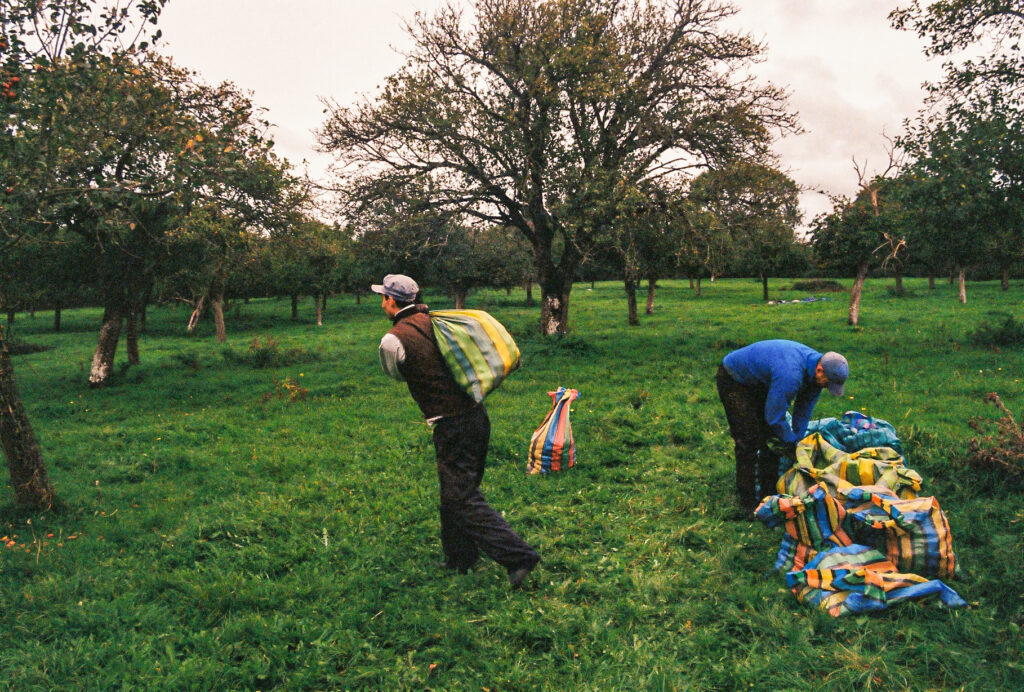
Autumn this 2023 has been most delayed. A brief cold snap followed by mild mid teens again. This means storing our fruit for longer until temperatures drop and remain low. Without this change the ciders will ferment quickly with a disposition towards the dry, possibly less complex, more alcoholic side. We prefer lighter ciders and so must sit and wait for things to change. Sadly this means a fair amount of picked fruit will over-ripen and need to be ditched on the compost heap. The below photo shows the sorting table with some of the worst affected fruit picked in Oct. In previous years this has stored well until late Nov, but was sludgy and sticky before even a month had passed so impossible to press. The photo on the right shows milled fruit, oxidising as it awaits the press.
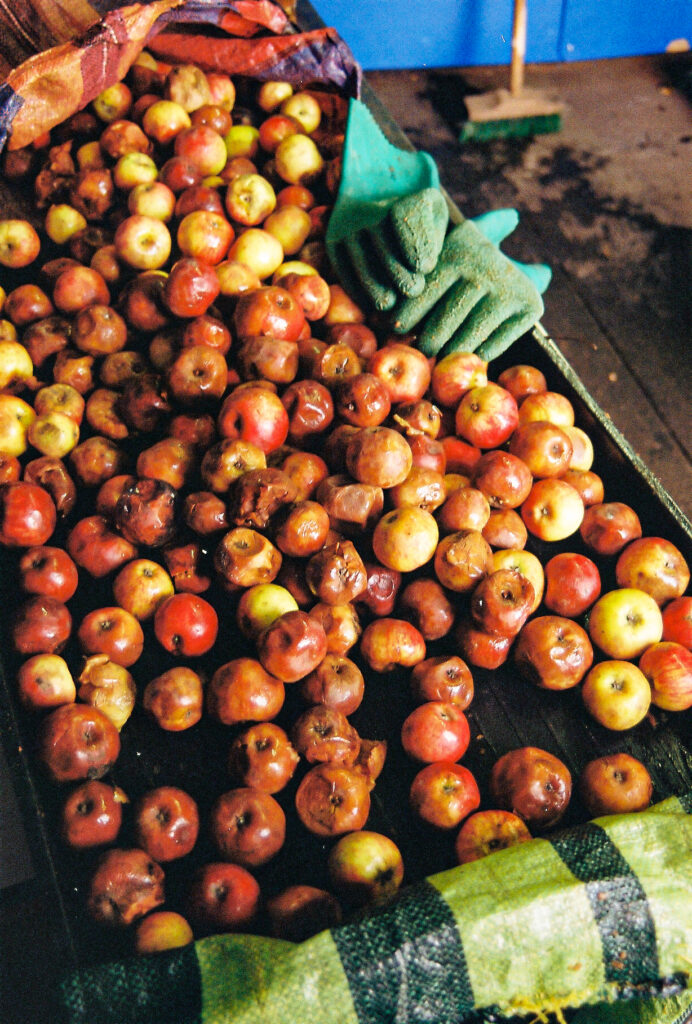
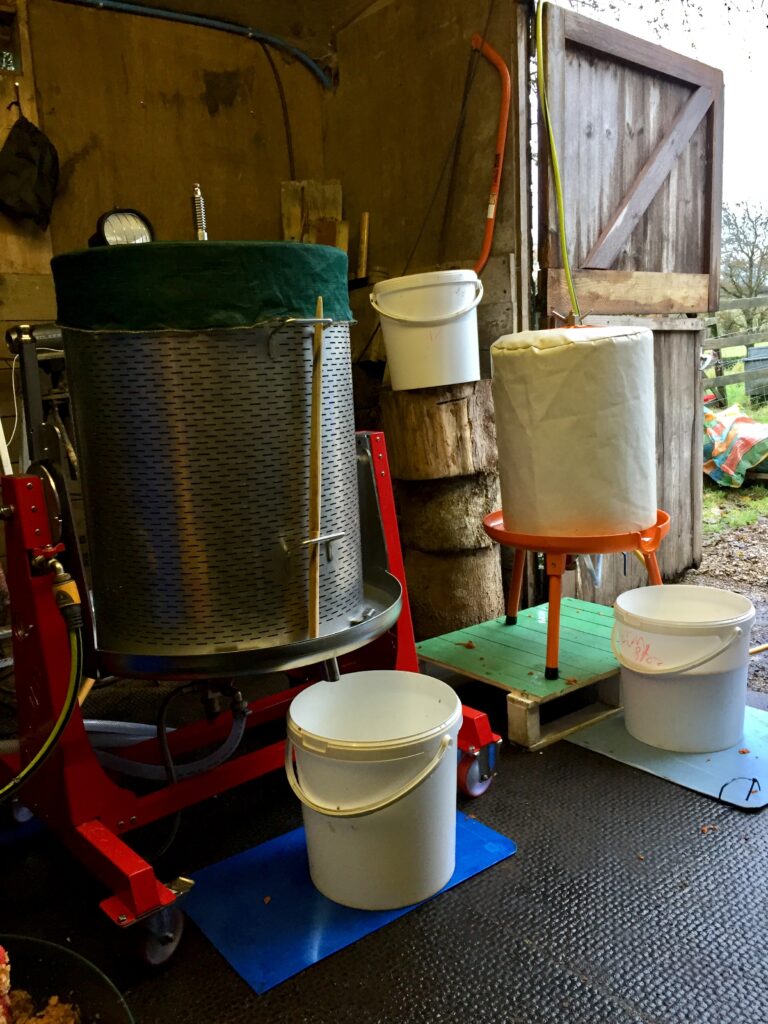
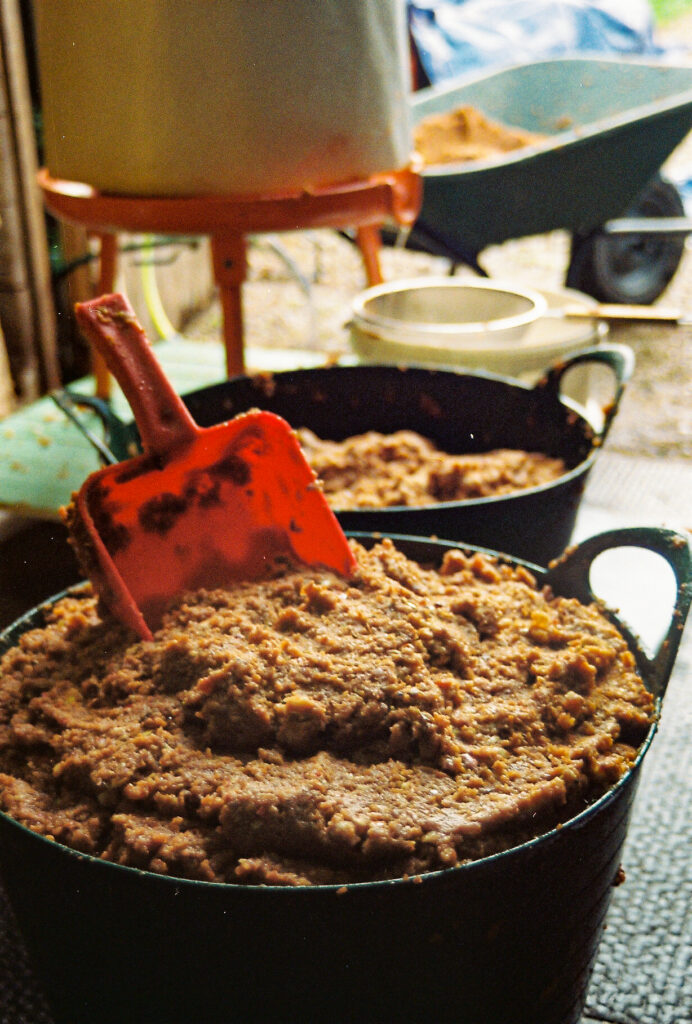
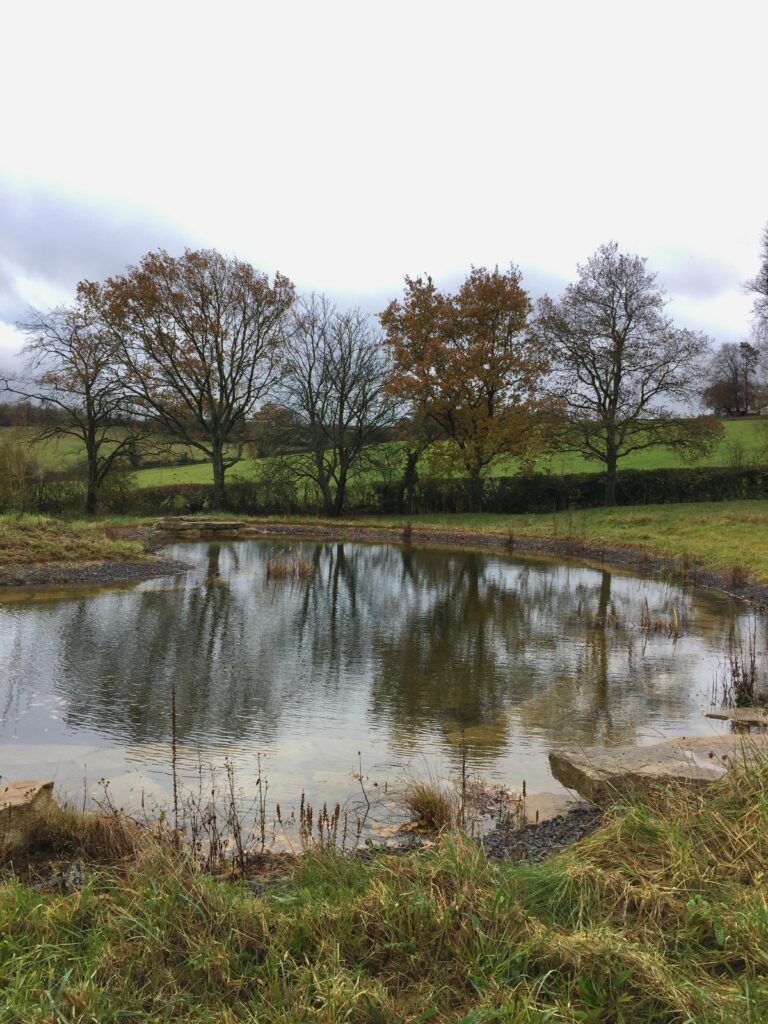
On the left we have our two hydro presses. These are both powered by water alone and only require a water pressure of 2.5 bar, so can be supplied with either mains water or, in our case, a separately installed pump, which draws from a natural rain-capture pond. This was created by grand dame, corp-sponsor and matriarch of this ad-hoc and borderline feloniously run enterprise, Anita [name may be fictional to protect identity], without whom none of this would be possible. The pump brings the water 50m or so from the waters edge, uphill to the cider shed, them is released back down again when each pressing is unloaded.
The small 40L press is perfect for separating out any precious small quantities e.g. only 1 or 2 sacks of a very limited variety.
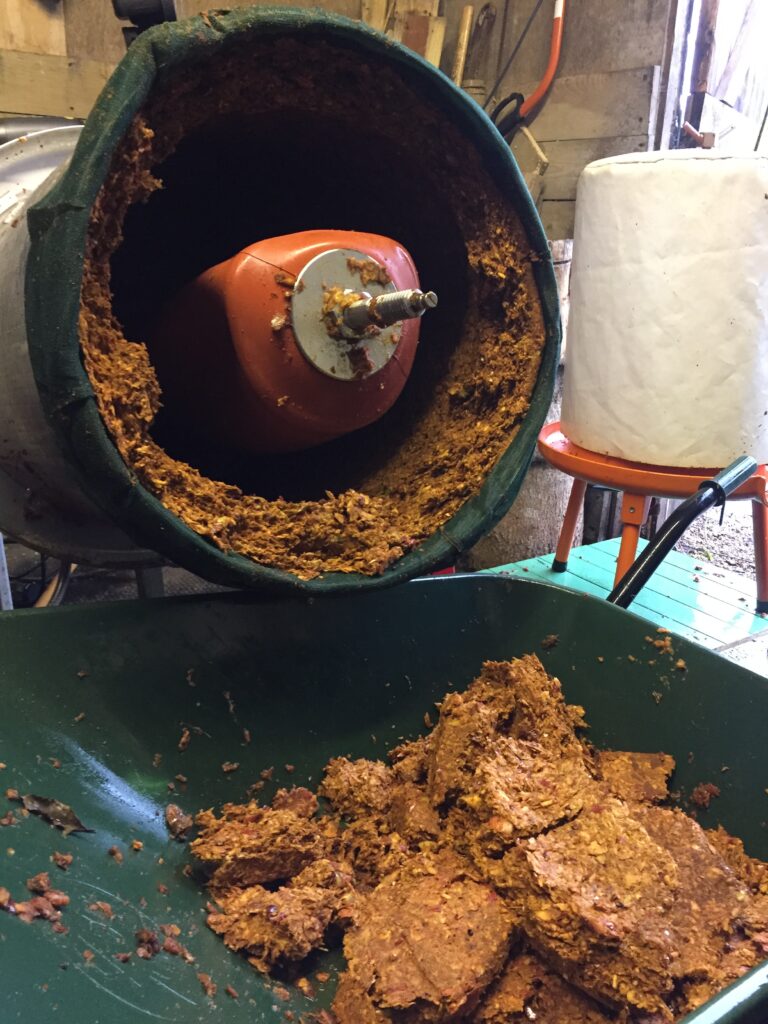
Unloading the larger press
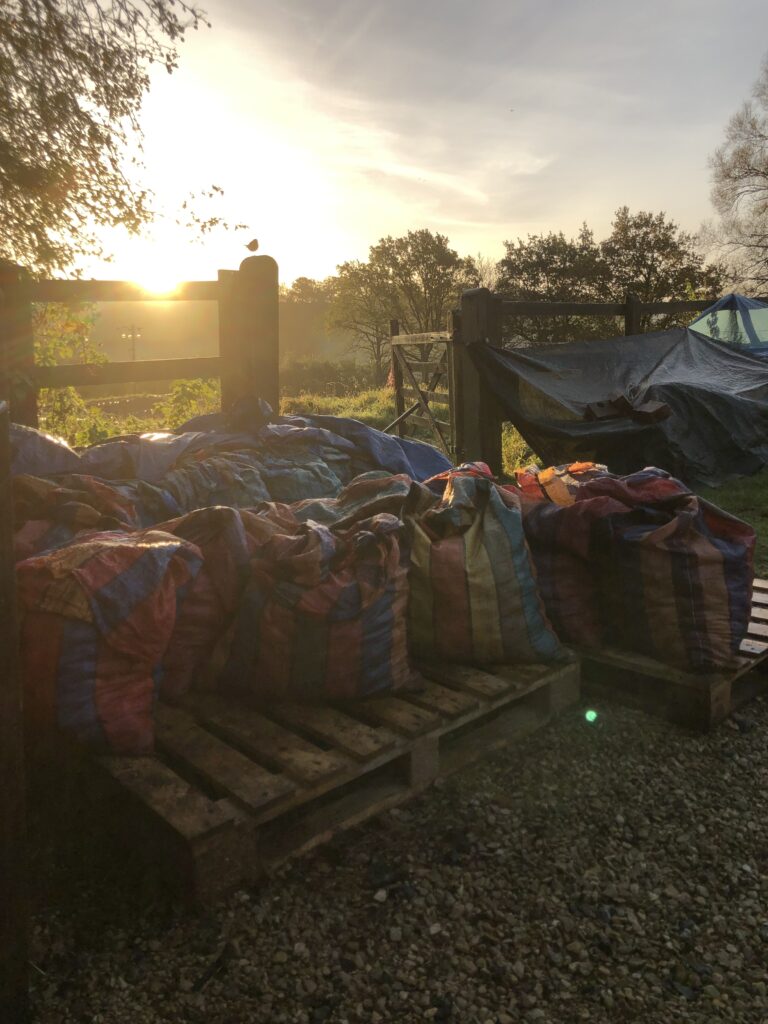
Apple sacks outside the cider shed awaiting pressing
Have you tasted our ciders? If not why not!
-
 MIXED VINTAGE SELECTION BOX – 3 SMALL BOTTLES£24,00
MIXED VINTAGE SELECTION BOX – 3 SMALL BOTTLES£24,00 -
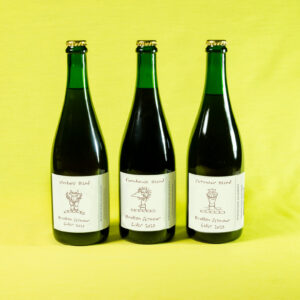 2022 CIDER SELECTION BOX – 3 BOTTLES£41,85
2022 CIDER SELECTION BOX – 3 BOTTLES£41,85 -
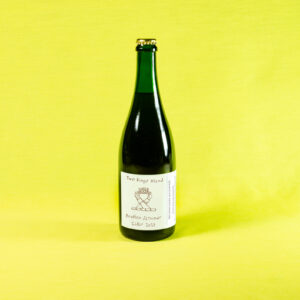 TWO KINGS 2022 VINTAGE – 4.1% ABV – SWEET£15,50
TWO KINGS 2022 VINTAGE – 4.1% ABV – SWEET£15,50 -
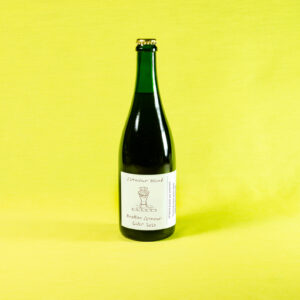 SEYMOUR 2022 VINTAGE – 5.4% ABV – SWEET£15,50
SEYMOUR 2022 VINTAGE – 5.4% ABV – SWEET£15,50 -
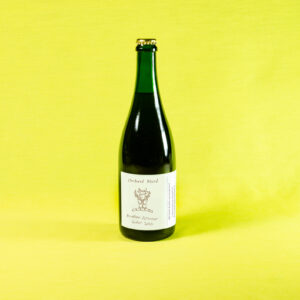 ORCHARD 2022 VINTAGE – 5.1% ABV – OFF DRY£15,50
ORCHARD 2022 VINTAGE – 5.1% ABV – OFF DRY£15,50 -
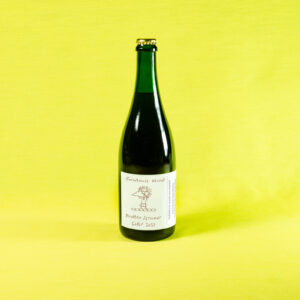 FARMHOUSE 2022 VINTAGE – 4% ABV – OFF DRY£15,50
FARMHOUSE 2022 VINTAGE – 4% ABV – OFF DRY£15,50 -
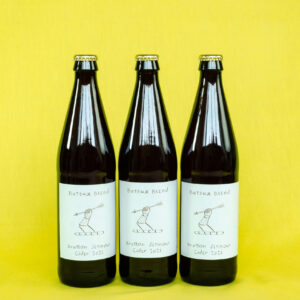 BAYEUX 2021 – 6.6% DRY – 3 BOTTLES£19,00
BAYEUX 2021 – 6.6% DRY – 3 BOTTLES£19,00 -
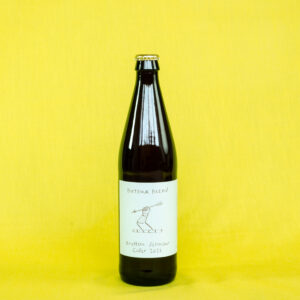 BAYEUX 2021 – 6.6% DRY£7,00
BAYEUX 2021 – 6.6% DRY£7,00 -
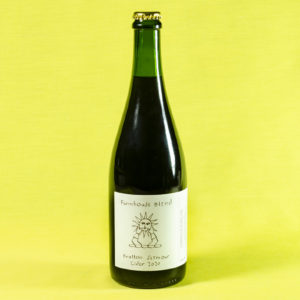 FARMHOUSE 2020 VINTAGE – 3.5% ABV – SWEET£15,50
FARMHOUSE 2020 VINTAGE – 3.5% ABV – SWEET£15,50
